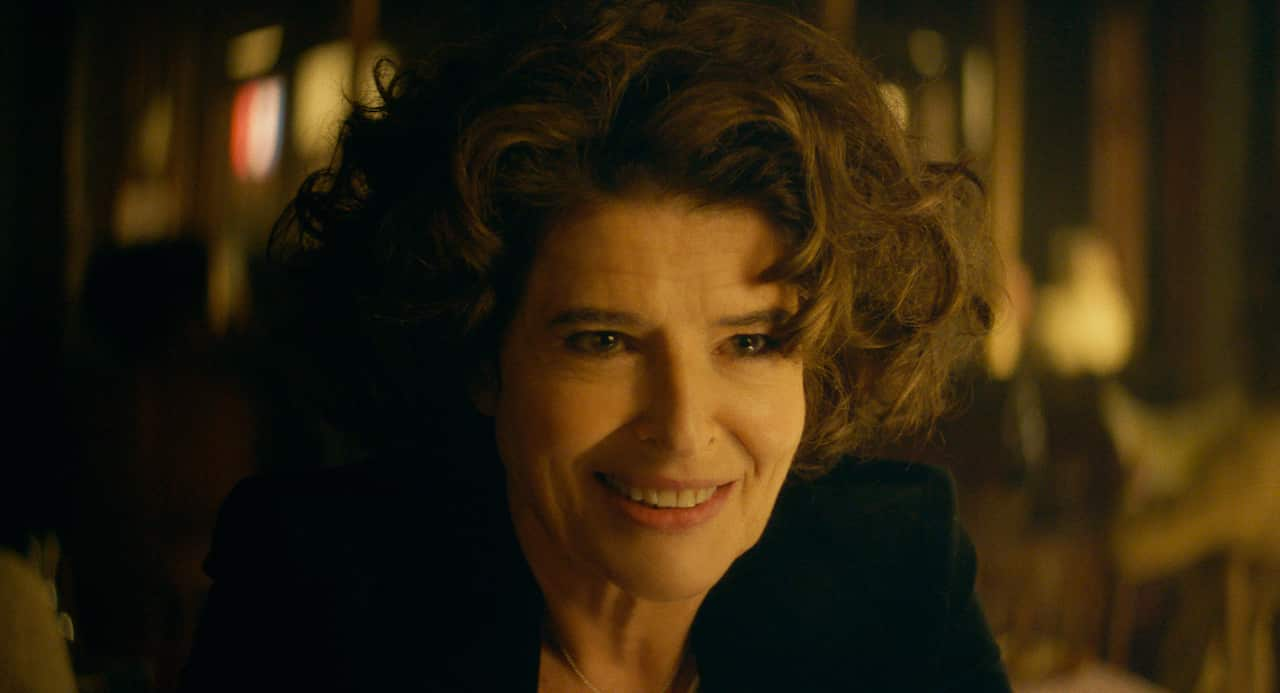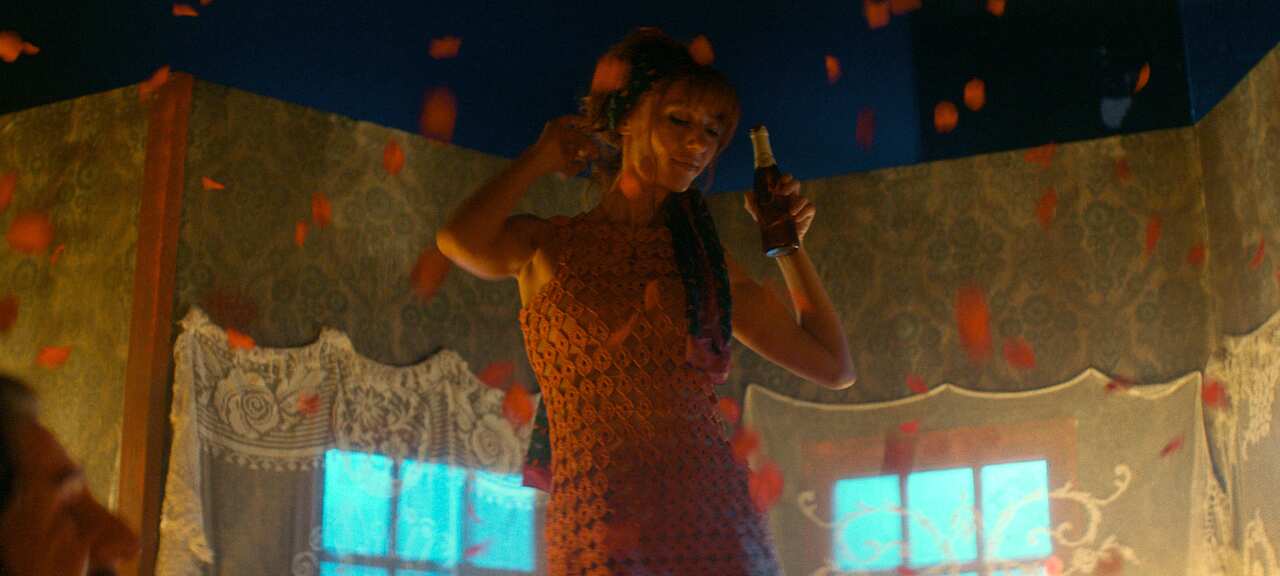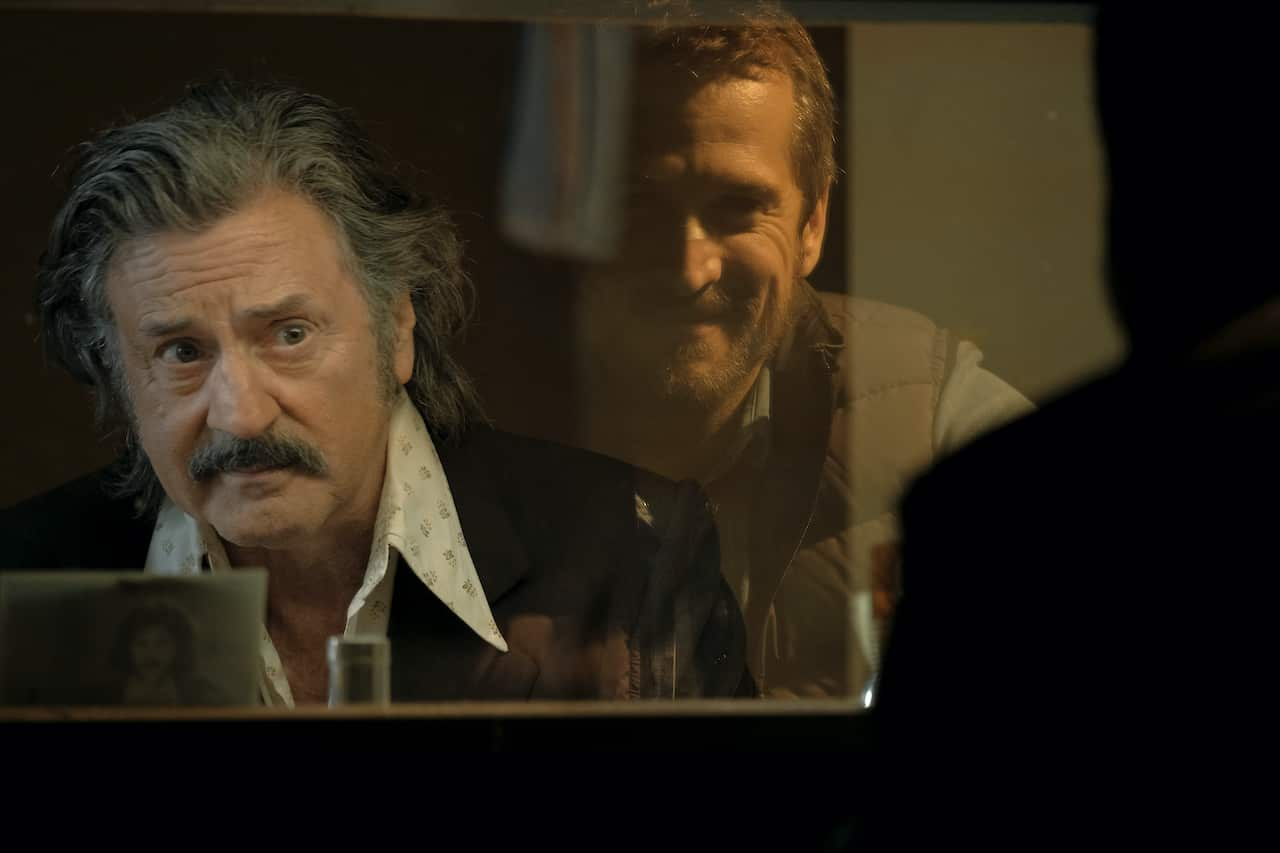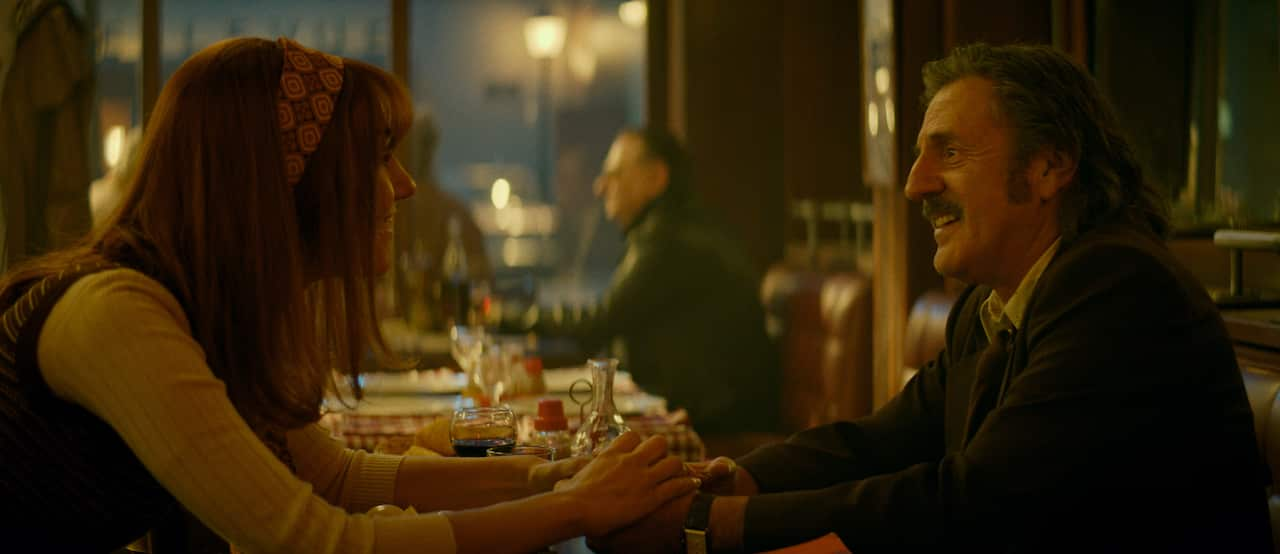Turn on the news and you’ll be confronted by the fact we live in turbulent times. It’s hardly surprising, then, that some of us choose to retreat into rosy memories of a supposedly superior past. But what if those memories could be recaptured? Not by reading a classic book or flicking on an old movie, but physically recreated by a responsive team of costumed actors enveloping you in a purpose-built set designed to mimic your nostalgic heyday.
That’s the high concept behind satirical comedian, playwright and actor-turned-filmmaker Nicolas Bedos’ perceptive, big-hearted dramedy La Belle Époque, screening during this year’s Alliance Française French Film Festival. The son of famous French funnyman Guy Bedos, he casts national living treasures Daniel Auteuil and Fanny Ardant as fraying couple Victor and Marianne.
A sacked newspaper cartoonist, Victor’s set in his ways, with that stubbornness infuriating his forward-thinking wife. Indulging in an affair with his ex-boss (Denis Podalydès), she decides to kick her husband out.

That leads a bruised Victor to Guillaume Canet’s entrepreneurial, permanently under-pressure Antoine, who runs just such a history-remaking outfit. Thrusting Victor TARDIS-like into a recreated ’70s, Bedos’ real-life partner Doria Tillier, who also appeared alongside Bedos in his hit directorial debut Mr & Mrs Adelman, plays actress Margot, performing a young Marianne for Victor. She also has an ‘it’s complicated’ relationship with Antoine, who crankily directs from behind two-way mirrors.
A huge hit at the French box office after debuting out of competition at last year’s Cannes Film Festival, La Belle Époque scored 11 nominations at this year’s controversy-plagued César awards. The equivalent of the French Oscars, it took home Best Original Screenplay for Bedos, Best Supporting Actress for Ardant and Best Production Design for Stéphane Rozenbaum, honouring his lush recreations.

The electric spark between Tillier and Bedos energises the room when I sit down with them in a suite at the Intercontinental Hotel during the 2019 Toronto International Film Festival. When I suggest that joy permeates the movie, a floppy-haired and stubbled Bedos is quick to remind me, via a translator, that making movies is anything but joyous behind the scenes.
“To get to what I want, sometimes I have to go against people and perhaps anger the people I love, like Fanny,” he confesses. “I’m intimidated by her, but I can be demanding. I’m walking a tightrope.”
Then there’s the sheer boredom of long shoots, even with a hectic pace necessitated by a tight budget in a film that has to conjure up Marie Antoinette’s court and Hemingway’s hard-drinking hangouts, as well as deploy flared suits akimbo. “By the end, you want to hug everyone, but there are hard days getting there.”

After we talk, Bedos goes on to wrap the much bigger budget latest iteration of James Bond spoof series OSS 117, but he dreams of a calmer pace. “Ideally it would be fun to make a very small film with a very small budget, just two or three actors in one location so we could be speaking softly to each other, no stress, no anxiety, no impatience. We could take a break and go for a drink for half an hour like we do in the theatre.”
Tillier is most amused by this confession, prompting me to ask her if Bedos on set is not unlike Canet’s cranky Antoine, who drives her Margot far too hard. “Yes,” she responds in English, chuckling. “It’s not a fiction film. It’s inspired by him.”
She assures me she speaks in jest. “Not exactly like that, of course. Nicolas is obsessive and passionate. He wasn’t hard with us, but he was tense.”

Perhaps Bedos needs a time-out in ’70s funky town too? Laughing, he adds, “Perhaps in France it was better on the economy side, but as our film shows in the end, the ’70s weren’t perfect. It wasn’t all roses. Women’s place in the world wasn’t better. They couldn’t have an abortion. There was much more homophobia. But just like the grass is greener, we always want to escape from our own reality.”
Playing out the fictions within this fiction was fun for Tillier. “I’ll start with the most superficial thing,” she grins. “I loved wearing so many wigs and different costumes. I also loved that Margot is using playing young Marianne to express some stuff that she feels, and I also used Margot and Marianne to express some of what I feel. That was a very tricky Rubik’s cube. I loved getting lost in my mind. It’s kind of a drug, though I’ve never done drugs, obviously, because I’m an actress.”
They erupt in laughter, and again I sense the vitality that springs from La Belle Époque. While he steers the topic of inspirations towards François Truffaut, André Téchiné and Jean-Pierre Bacri, Tillier gleefully brings Bedos down to earth. She nominates the big-screen adaptations of ’70s theatre collective and future filmmakers Le Splendid as her all-time favourites, including Jean-Marie Poiré’s amusingly titled Santa Claus Is a Stinker (Le Père Noël Est Une Ordure).

“They are cult films with very clichéd characters, but all these clichés are really well interpreted by the actors. It’s very poetic as well as funny,” she says. “It’s cathartic, because I’m laughing, but I also recognise some of myself.”
Highbrow condescension can go jump, Tillier suggests. “Comedy is a major art. It’s not just lightness. It can be very character-driven.”
Bedos agrees. “What I love is when they put comedy into films about passionate people who love, debate and dispute.”
La Belle Époque screens as part of the 2020 Alliance Française French Film Festival and goes on general release in April. Find out more here.
Follow the author here: @SARussellwords
